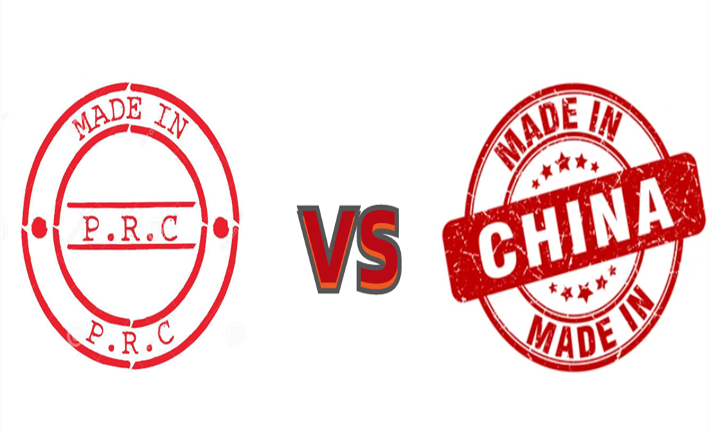The Importance of Building Incentives in your Product Sourcing Strategy
When you want people to do something in your benefit, you need to build incentives to let them do what you want them to do. When creating your sourcing strategy, you aim to ensure your needs in China are met. You can hold your supplier accountable that they stick to the agreements made. Creating incentives for the factory to work in your interest mitigates the inherent risks of doing business in China.
By creating incentives for your suppliers, you create a win-win scenario for both parties involved. The supplier will be more likely to take better care of their production process if offered attractive incentives. It protects the buyer from risks and helps develop a positive working relationship between the supplier and the company. This could lead to greater collaboration and better communication.
Be aware of your strengths and weaknesses as a buyer and how much interest the supplier has in working in your interests. Identify areas where you can improve your position. This way, you also prepare yourself to negotiate effectively.
So what incentives are involved when working with a Chinese supplier?
Different kinds of incentives in your sourcing strategy
Various stimuli can push the supplier to work for your benefit. To know what motivates them, you should know about the possible incentives at play. Here we will describe the following:
- Legal interests
- Interpersonal benefits
- Financial motivations
- Strategic benefits
- Interests in “saving face”
- Knowledge interests
Legal interests
Building legal protection should be part of your purchasing strategy. When signing production contracts, non-disclosure agreements or any other contractual documents in China, you may expect to be able to enforce them using the legal system. China has a transparent and relatively accessible legal system, giving foreign companies access. Many paths have been described on paper; in theory, setting a strategic sourcing process in motion is fairly straightforward.
However, foreign companies often struggle to navigate the complex Chinese legal system. As a result, the country has a complicated legal process to follow.
Case law also differs from the West and is based strictly on facts. The case law is only based on what was explicitly agreed to in the contract. Matters such as social reasonableness and nuances, often regarded in the West, are usually ignored in China. Therefore, to be protected, you must have an extensive contract with all possible scenarios written down in a contract of legal value to be able to enforce it.
Legally valuable documents help you to better protect yourself when problematic scenarios happen. Taking matters to court is not in either party’s interest. It is costly, time-consuming and complicated. This is even more true for the foreign party than for the Chinese party. Legally binding contracts create leverage for problem-solving and future negotiations. The simple fact that you have this leverage and could use it makes the other party more reluctant to break agreements. In our vision, the main goal of legal contracts and building legal protection is to maximise their preventative value.
Interpersonal benefits and incentives (guanxi/ 关系)
Developing interpersonal relationship and long-term relationships with suppliers play a crucial role in China, and should play a role in your sourcing and procurement strategy as well. The Chinese concept of trust and personal relationships is called guanxi (关系)[1]. Interpersonal interests are vital for trust within China’s society.
When interpersonal relationships are good, the chance that someone will help you or stick to agreements is significantly higher. Solid interpersonal interests lead to honesty and openness and are always mutual. It motivates the supplier to prevent situations in which they treat their client wrongly and have to admit this. If you maintain a healthy relationship with your supplier, you will learn more about what is going on on their side. You will also know what matters to them. As partners, you are expected to support each other, help each other out and create opportunities for each other. You acquire a better negotiation position and can negotiate better terms for whichever is relevant to you. These include better prices, payment terms, delivery terms and many more.
The building of interpersonal relationships is important, but the relationships built slowly and require constant investment. You need to give and invest in the relationship to see the potential strategic benefits of an interpersonal relationship. This often means you may have to give in to your principles and accept things sometimes. This prevents the other party from losing face and getting into trouble. By showing that you are a valuable and reliable partner, you are more likely to establish a strong, trusting relationship with the supplier. This will benefit both parties in the long run.
Financial motivations
Financial interests are predominant in international business and in China business even more so. They should always be considered in your product sourcing strategy. Chinese people work for money, so if they have no monetary motivation, they will not work for you. When there is a solid financial incentive in place, for example, above-average payment for goods, this will be a strong incentive for the Chinese manufacturer also to deliver “above-average” quality and work in your interests to make you a recurring client. The opposite is also true. When sourcing from China, remember that price and quality are strongly related. If you negotiate prices too far down, factories will find cheaper solutions to produce and deliver your product. They will cut corners and compromise on quality. Manufacturers always defend their financial interests.
As long as Chinese companies have a financial interest in a party, they are more willing to follow agreements. The Chinese party should always be financially interested in doing business with you. The main financial interests include future payments. It will motivate the Chinese partner to stick to the agreement and deliver the expected quality. You have financial leverage if future payments are still expected. Expected payments can be balance payments or payments for upcoming orders.
Strategic benefits
For a Chinese business partner, working with you may be strategically important due to your network, distribution channels, or brand. Suppose you can offer a particular distribution network in your own country in another part of the world that the supplier has no access to yet. In that case, you can become strategically important for the Chinese party.
You may also have a brand highly regarded in China or a company with well-known customers worldwide. Both are branding aspects with which the company can profile itself to its customers. Status and hierarchy are exceptionally highly valued in Chinese business culture, and working with a valuable brand can increase the status of a Chinese company.
Interests in saving face (mianzi/ 面子)
“Face” is a crucial concept in Chinese culture and communication. It refers to a person’s social standing, reputation, and dignity. Losing face can humiliate and damage the reputation while gaining face can bring honour and respect.
If the supplier does not deliver what they promised while these promises are written down in clear terms, the Chinese cannot deny things went wrong and will “lose face”.
To prevent “losing face”, the Chinese often want to define as few terms as possible and avoid written contracts with well-defined written terms. The more ambiguities there are in collaboration, the more opportunities allow ‘misunderstandings’ to occur. Should there be a misunderstanding, it should be reasonably feasible to amend the agreement without losing “face”. It is, therefore, often beneficial for the Chinese to keep contracts open and vague as much as possible. They want to depend on ‘trust’, mutual giving and taking as much as possible.
To keep control over the outcome and responsibilities, foreign buyers must make clear written agreements. It sometimes takes a lot of negotiations to ensure you can work with well-defined detailed contracts to reduce buyer uncertainties.
“Face” culture also plays a crucial role in negotiation and problem-solving. Being tactful, culturally sensitive and allowing your Chinese partner to save face can motivate your partner. It costs little to do this, and you may get solutions that serve your company’s interests in return.
If you give your Chinese partner the feeling that he may “lose” the negotiations, which will cause them to lose face, they may go into a defence mode and be less likely to make concessions or accept compromises. This can worsen the business relationship and does not serve your company’s interests.
Interests in knowledge and intellectual property
Chinese companies may also be interested in your knowledge. We see knowledge as intellectual property (IP). An IP can be an invention, physical application or design. IPs often come with products. If you possess knowledge in which a Chinese party is interested, they may comply better with agreements or perform to a certain extent.
There are also several downsides to this. The Chinese company may intend to steal and market your IP. You will likely keep confidential information private from many suppliers, making you more dependent on one supplier. Possessing moulds at a particular factory will make you even more dependent on this supplier. Having your moulds in their factory will be seen as leverage by them, as they control what happens to your moulds in case of conflict. As a result, you will depend greatly on the manufacturer. Chinese parties know this very well and are adept at it. They may exploit this, for example, by raising prices for you. Defend yourself well here. You must remain strategic and ensure their interest in working with you always remains significantly greater than your dependency on your supplier.
A culture of compromises, pragmatism and renegotiations.
Trust and cooperation are often based on very different grounds in China’s culture than in Western culture. In China, trust and collaboration are built upon relationships and business relationships are formed by constant give and take. It is much less reliant on oral agreements and binding contract terms. It is assumed that during cooperation, both parties are pragmatic and accept compromises that help both parties move forward. The interest in maintaining the business relationship stems from the intention to continue the partnership and, therefore, to look for pragmatic solutions. Both parties expect to constantly settle business disputes and seek constructive long-term solutions to mature the agreements and business relationships.
This tendency to the give-and-take mentality and attitude of settling all problems to keep the relationship healthy can often frustrate Western businesses. Constant negotiations and compromises about earlier agreed terms are often necessary to make cooperation succeed and ensure its own benefits. Therefore, you should be prepared for potential renegotiations and build a product sourcing strategy to defend your own interests in the long run. Also, be willing to initiate renegotiations on terms, if you can negotiate terms that benefit your company. In these renegotiations and settlements, the more benefits there are on the supplier’s side in cooperating with you, the more you can negotiate terms that are in your interests.
Create interests, benefits and leverage
There must always be incentives for both parties to establish and maintain a relationship with a Chinese supplier. Therefore, create incentives with the other party to negotiate beneficial terms for your company. In addition, ensure that your supplier adheres to the agreements.
Analyse what interests and incentives are involved in the cooperation between you and the Chinese party. This way, you can estimate your company’s positions in a possible collaboration. If, from this position, you want to get a better position in negotiation and problem-solving, you need to create more incentives for the Chinese party. If you wish the Chinese party to do something, they must be interested in doing so.
Discover the feasibility of your wishes and requirements by knowing your own position. When you know your own position and that of the Chinese party, you have control over the situation and assess possible scenarios. When determining the scenarios, you may discover that your current interests do not favour your position in certain conditions. Based on the possible scenarios or to create a better position in cooperation with the Chinese party, you can investigate the possibilities of strengthening current interests. Investigate how to expand relevant interests.
The incentives are also often temporary. It is, therefore, necessary to find a China sourcing strategy to maintain the supplier’s incentives in cooperation with you. Within a company and a partnership, situations change constantly. When conditions change, motivations and interests change too. Long-term collaborations, therefore, require long-term incentives. Mutual incentives for cooperation in various situations make collaborations and agreements sustainable.
Depending on the situation and the type of cooperation, there will be a different China sourcing strategy you can use. Listed below are some strategies for building more incentives into your supplier relationship to strengthen it.
Legal incentives:
If you want a Chinese company to take sufficient responsibility, you must create a legal interest by laying this down in a contract. You can build leverage by agreeing to more in your contract than is strictly necessary for your company. The better your negotiation position is at the start of contract negotiations, the more you should try to get out of this. Ensure that terms and agreements are as strict and detailed as possible. Do this for all terms in your contract: Function and product specifications, quality specifications, agreements and scenarios. The more the manufacturer agrees in detail in writing and the more specific it mentions, the more legal leverage you create.
The advantage of these strict and detailed terms is that when issues arise (which always happens), you always have something to give away. While some of these issues aren’t important, fixing them for the factory will be costly. Allowing the supplier to get away with some unimportant matters makes achieving a substantial “win” from the negotiations possible. They can “save face”, and the relationship can be maintained while you still get what you want for your company.
Interpersonal benefits and incentives
Define in your product sourcing strategy plan how to enhance and maintain relationships with your suppliers. This can be done in many ways, such as by spending more personal time with your supplier. You can also communicate considerately and don’t let them lose face. Show that you are a reliable partner for them. I wrote a separate article about building long-term relationships with suppliers here.
Financial motivations
Always make sure there are financial motivators for the supplier. If there is no substantial financial interest to offer because you order small amounts, it is crucial to convince the party of future financial interest as much as possible. The Chinese party always looks at your company size and the first order size to estimate their interests. Additionally, they assess the financial gains they will receive through long-term cooperation.
The larger the financial interest, the more opportunities to realise the conditions and requirements. So, to increase motivation, make your company look bigger than it is, consider your order size, come across as professional and a person with status and convince the Chinese party that you plan bigger order sizes in the future.
Another key aspect is always keeping financial leverage on the supplier’s side. Make sure that they continue to expect payments from you. This can be done with the payment terms you negotiate. The lower the percentage deposit payment and the later you make the balance payment, the more financial leverage you have. Therefore, the more negotiation power you have later. When you have planned orders that will be paid in the future, this will also incentivise the supplier to find better solutions to your problems. Use your procurement strategy plan as the incentive for the supplier when possible.
Strategic benefits
By proving your strategic benefits to the Chinese supplier, they will be more interested in working for you. Find out and communicate why your distribution channel or brand is strategically relevant for the supplier.
“Giving and saving face”
Find out how you can work in a way that “gives face” to the company and its (relevant) people that you work with. You may bring something valuable to the Chinese side and gain respect by being considerate. Be patient, culturally sensitive and know the most appropriate moment to discuss problems. Don’t be rude and offensive. Ensure you always give away something the other party can claim as a “win”. Often this is relatively inexpensive to do.
Knowledge benefits and IP protection
Include in your strategic sourcing plan how you want to convince the suppliers that working with you provides knowledge advantages for them. Also, devise ways to avoid incentivising the supplier to market your secrets by themselves. Find out how to keep the supplier’s interests high enough to cooperate with beneficial terms for you. You can, for example, consider backup options for suppliers to produce your product, so the supplier cannot assume that you will remain their client no matter what.
Always define interests in written terms
Incentives can ensure compliance with agreements and contracts. In an agreement, it is vital to define motivations in terms. In the eyes of a Chinese party, a contract is an agreement which helps find suitable solutions in any situation. It is advisable to see the contract as a document defending interests. This will ensure you have a good starting point for negotiations in all kinds of scenarios. Incentives contribute to the performance of an agreement. Therefore, the incentives’ relevance determines the extent to which a contract will likely be performed. Current interests can indicate the strength of the other party’s case to stick to an agreement. If interests change over time, the certainty of an agreement’s performance will also change.
Conclusion
Mutual interests always drive the relationship between a foreign buyer and a Chinese supplier. The main incentives for a Chinese supplier to work for you may vary. Define in your strategic sourcing what incentives you can provide and how you use them. Some common incentives for them to act to your benefit include legal protection through contracts, building solid interpersonal relationships (guanxi), financial motivations, strategic advantages, knowledge benefits and respecting the Chinese concept of “face”. By understanding these incentives and creating new incentives for their business relationships, you can mitigate risks and ensure their needs are met. Especially since you can expect to renegotiate and compromise when working with a Chinese supplier constantly. Ensure you always have bargaining chips to work with.
Define the incentives in written terms and ensure their maintenance over time. Both parties can benefit from successful and sustainable collaboration by building strong relationships and creating incentives. As a buyer, you will have more chances to reach your business goals in China.
Get help from Sino Import Solutions
Sino Import Solutions can help your company with formulating the best strategy for your business, to and better outcomes for the short and long term. Contact us to get expert advice on working with your supplier. Or visit our services pages to understand how our services can help you





